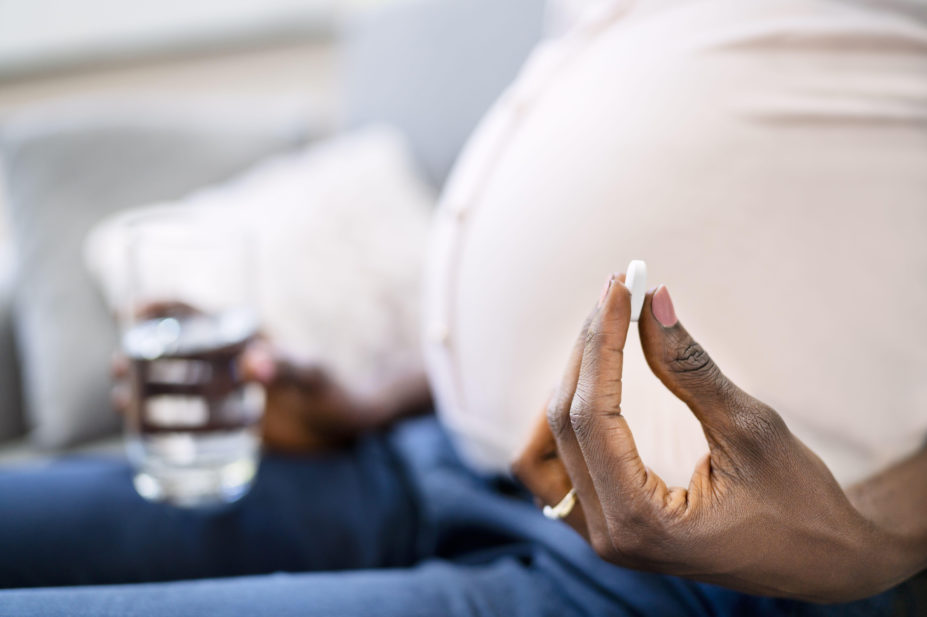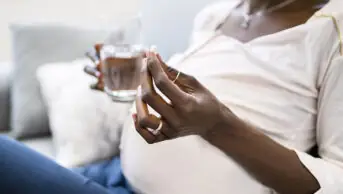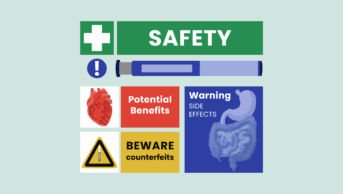
Andriy Popov / Alamy Stock Photo
There have been further reductions in the number of women prescribed sodium valproate during pregnancy, but around 50 were still prescribed the treatment from October 2020 to September 2021.
According to figures published by NHS Digital, 949 women in England who were on the valproate register have had a pregnancy since April 2018, of which a total of 247 were prescribed the drug during their pregnancy.
Of these, 46 women were prescribed sodium valproate, which can cause birth defects, during their pregnancy in the most recent recording period, from October 2020 to September 2021, representing a reduction from 65 women recorded in the previous 12 months.
The figures show a large reduction in sodium valproate use overall. In September 2021, 20,192 females aged 0–54 years were prescribed the anti-epileptic, a fall of 7,256 since 2018 and 2,713 fewer than the previous year.
In September 2021, 40.1% of women prescribed the drug were aged 16–44 years, NHS Digital said — the same proportion as the previous year, although the number had fallen by around 800.
However, there was a similar number of new starters for the treatment on the register in September 2021, at 206 females, compared with 195 in September 2020, the NHS Digital report said.
Work is ongoing to extend the registry to all anti-epileptic drugs in England, and Wales and Scotland are also planning to collect data. The latest report includes data showing that 102,207 women have been prescribed topiramate since 2018, with 7,609 having a pregnancy during that time and 1,383 being prescribed it while they were pregnant.
A Valproate Safety Implementation Group was set up by NHS England to explore deprescribing valproate where safer alternatives are available, ensuring access to highly effective contraception and shared decision making.
It follows a ruling in 2018 from the Medicines and Healthcare products Regulatory Agency (MHRA) that valproate must not be used in any woman or girl able to have children unless she is supported by a Pregnancy Prevention Programme.
In 2021, a safety review found that carbamazepine, phenobarbital, phenytoin and topiramate were associated with an increased risk of major congenital malformations.
Sodium valproate was also included in guidance for primary care networks (PCNs) in March 2021 for identifying and prioritising patients who would benefit from structured medication reviews.
Speaking at the Clinical Pharmacy Congress in 2021, Keith Ridge, the then chief pharmaceutical officer for England, said that the rate of decline in the use of valproate in women of childbearing age had been slow but that pharmacist safety reviews through PCNs would support this work.
Daniel Jennings, senior policy and campaigns officer at the charity Epilepsy Action, said: “While it is encouraging to see that the number of women given prescriptions for valproate is falling, it is clear that there are still too many women being prescribed this medication.
“However, we know that for many women with epilepsy, valproate is the only medication that controls their seizures. Until effective alternatives are available, these women will continue to rely on valproate.”
He added: “There is still more that needs to be done to ensure that all women and girls are aware of the risks of taking valproate during pregnancy. We will continue to work with the MHRA and others to increase awareness of these risks.”


